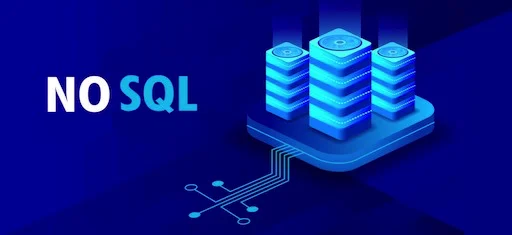Introduction
In the vast universe of databases, the traditional relational model has long been the go-to choice for storing and managing data. However, as technology evolved and the demand for scalability, speed, and flexibility increased, a new player emerged – NoSQL Databases.
In this blog post, we’ll embark on a journey into the world of NoSQL databases, explore their key features, popular types, and the advantages they offer over traditional relational databases.

Understanding NoSQL Databases:
NoSQL, an acronym for “Not only SQL,” is a term that encompasses a variety of database management systems (DBMS) that deviate from the traditional tabular structures found in relational databases. NoSQL databases employ a different approach to organizing and storing data, making them particularly suitable for handling large volumes of unstructured or semi-structured data with high read/write throughput.
Types of NoSQL Databases:
- Document-based Databases: MongoDB and CouchDB are examples of document-based NoSQL databases. They store data in flexible, JSON-like documents, allowing for easy and schema-less storage.
- Key-Value Stores: Redis and Riak are popular key-value store databases that use a simple key-value model for data storage, making them highly efficient for high-speed data access and caching.
- Column-based Databases: Apache Cassandra and HBase fall into this category, where data is stored in columns rather than rows. Column-based databases excel at handling massive amounts of data while ensuring fast query performance.
- Graph Databases: Neo4j and Amazon Neptune are graph databases that focus on relationships between entities. Graph databases excel at managing complex relationships, making them well-suited for social networks, recommendation engines, and fraud detection systems.
Benefits of NoSQL Databases:
- Scalability: NoSQL databases are designed to scale horizontally, allowing you to add more servers or nodes seamlessly and distribute the load. This enables handling large data sets and high traffic volumes effectively.
- Flexibility: With NoSQL databases, you can easily modify the schema or data structure on-the-fly, eliminating the need for complex migrations when dealing with evolving data requirements.
- Performance: NoSQL databases offer low latency and high throughput for read and write operations, making them a preferred choice for high-performance applications.
- Fault Tolerance: Many NoSQL databases have built-in replication and data distribution mechanisms, ensuring high availability and fault tolerance, reducing the risk of system failures and data loss.
Use Cases for NoSQL Databases:
NoSQL databases find applications in various domains, including:
- Big Data Analytics: Hadoop-based systems leverage NoSQL databases to handle the massive volume, velocity, and variety of data generated by big data applications.
- Real-time Web Applications: NoSQL databases handle high-frequency data updates in real-time, allowing for efficient processing of user-generated content, social media feeds, and IoT data.
- Content Management Systems: NoSQL databases provide flexibility and scalability required to handle content management, providing seamless experiences for users interacting with multimedia-rich websites and applications.
Conclusion
As the dependency on complex data grows, so does the need for robust and scalable database solutions. NoSQL databases have emerged as a powerful alternative to traditional relational databases, offering scalability, flexibility, and performance for modern data-driven applications. Although NoSQL databases may not be suitable for every use case, understanding their benefits and use cases will help you unleash their full potential, enabling you to make informed decisions when architecting data storage systems for the future.
